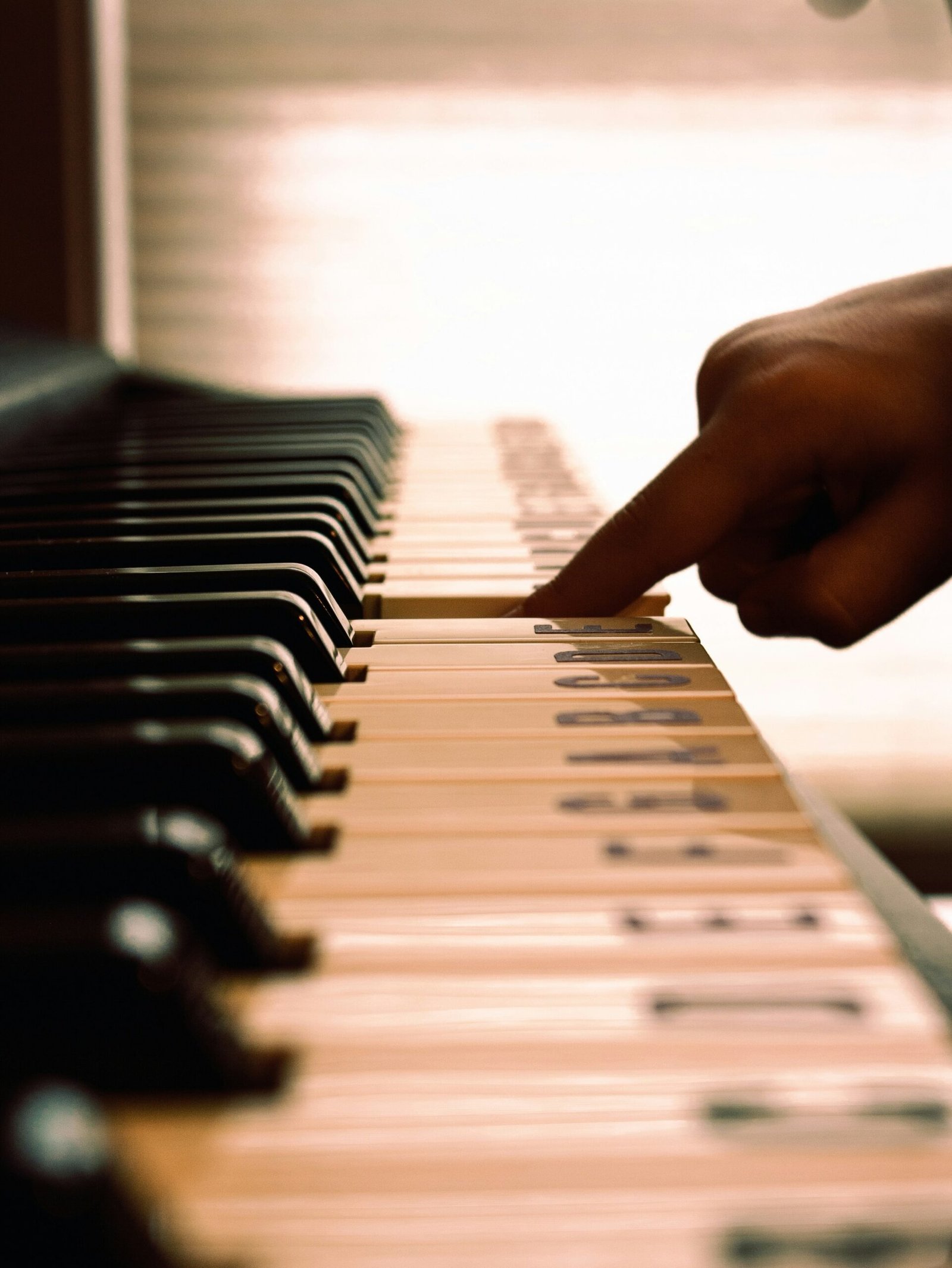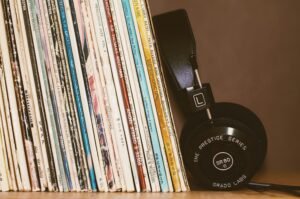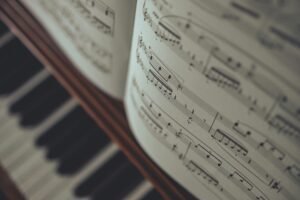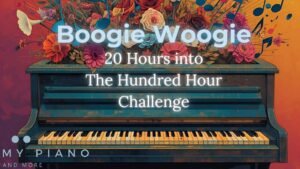Introduction: Why Learning Piano After 50 Is Possible and Enjoyable
Learning Piano after 50 may seem impossible at first. The thought, “how can I learn something new at my age or I’m too old to learn something new” but let’s dispel that myth immediately. The truth is learning anything new at an older age is not only possible, but indeed benificial. As we age, our available time often increases, we have less distractions and we have the patience to try something new. So in this post I will offer tips and tricks I have picked up along the way for piano late learners that you to help inspire and support you along the way.
Getting Started – What You Need to Begin Your Piano Journey
First things first, to start learning piano at any age you need to start that beginning. Find a Piano or Keyboard that will suite not only you , but your budget. To help with that choice, I created the table below that gives some of the most popular options in the separate price ranges and with explanations below.
| Price Bracket | Typical Features | Example Models | Where to Buy |
| Under $250 | Limited or semi-weighted keys | Budget Amazon/Walmart picks | Amazon, Walmart |
| Under $500 | Entry level weighted keys | Yamaha P45, Roland FP-10 | Amazon, Walmart, Sweetwater |
| Under $1000 | Enhanced keys and sound | Roland FP-30X, Yamaha P-143 | Sweetwater, Guitar Center |
| Under $1500 | Premium action, better cabinetry | Yamaha CK88, Yamaha YDP-145 | Sweetwater, Sam Ash |
| Under $2000 | Advanced features & sound | Casio PX-870, Yamaha CLP-735 | Sweetwater, Musician’s Friend |
This table should get you started but here as a short checklist of key (no pun intended) things to look out for no matter your price range:
- Weighted keys – a must for all players – going for this will increase the longevity and enjoyment of your first piano.
- USB or BluTooth connectivity – having a the ability to connect your devices to your piano will give you many more options. If you going digital, go connected.
- Pedals – try to get a piano with at least a sustain pedal, but if you can get all three then all the better. Using the pedals on the piano will get you to that beautiful sound you want to play.
- A Piano Stool – playing on a chair is possible, but on a piano stool you will have a much better posture which will help down the road
- Headphones – again if you are going digital – great for practicing when you don’t want to disturb others.
- A metronome – timing is everything
- Some Piano beginner for adults Books – see reviews and guides for the best for you.
- A good Piano teacher – if you have the funds and time, this will make the journey a lot more social and supportive, don’t go it alone if you don’s have to.
The First Steps – Learning Basic Piano Notes and Keys
Every journey starts with the first step. And in Piano learning terms that first step, nomatter where you start will be middle C. Virtually all beginner pioano lessons and step by step beginner piano guides will begin here. It is the central point on the map of the piano keyboard as demonstrated here.

Using this central location, most beginner piano books will ask you to locate and play Middle C and then expand from there.
Important note: Please do not put stickers on your keys for the notes. This will give you a false sense of security and will cause you to look at the keys all the time. Not only that, they will get dirty, and ruin that lovely look and feel of your shiny new piano. Trust in yourself and the process and in no time you wont even look at they keys, you will be busy reading the music and you hands will know where they are. Trust yourself here.
Finger placement
The very next thing you will come across is finger placement. On each hand, the fingers are numbered from thumb to little finger 1-5 respectively. So on each hand, your thumb is number 1 and your little finger (pinkie) on each hand is number 5. Thus your middle finger on each hand is number 3. When learning your first pieces and how to play. Try to find sheet music with finger placement notation (fingering). This will prove invaluable when learning the new songs as the finger placement notes help you move to the next note with the correct finger much more intuitively.
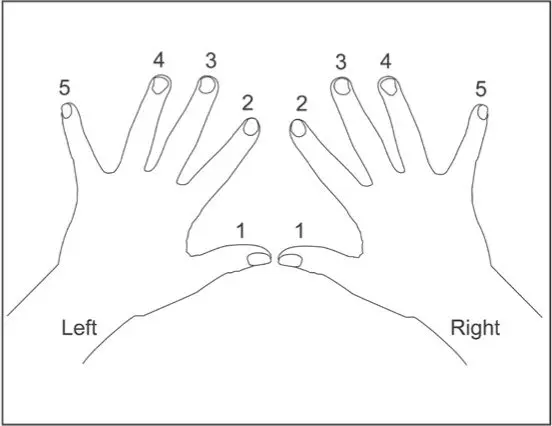
Top tip: Try drumming you fingers on the table right now. Begin with the little finger (number 5) on each hand – easy is’nt it , it kind of flows naturally. OK now try the reverse, starting with your thumb (number 1) on each hand – not so easy is it? Keep practicing this every day it will help the natural movement of your hand you will develop when playing. You may find you need to “roll” your wrist to achive the same speed. Try it and see what you think.
Playing your first songs
When you first start playing the piano, you will have that moment, moving from simple scales and finger progressions to playing your first song. You will have that mixed emotion moment, you will be so happy that you have achieved something new, but you will probably be a little bit dissapointed that it’s not the level you wanted as fast as you wanted. This is the point where choosing the first songs you will play has a key role in how you find enjoyment, a sense of accomplishment and the drive to continue.
Each player has their own personal preference, so I recommend, going through your early study material, but taking some time to attempt that song that is in your head. Many songs have easy versions that can give you a sense of accoumplishment and motivation to continue. Remember, Rome wasn’t built in a day. It takes time, but with repeated practice and dedication, you will improve, day by day and you will achieve your goals, keep at it.
In this link, you can find some of the early recordings I made from simple songs that (although amateurish) are easy pieces to learn and find that way forward.
The Mental and Emotional Benefits of Learning Piano
In another post, I talk about how learning to play the piano triggers reactions in the brain that are key to both mental and pohysical health. The truth is, learning any musical intrument is like a full body workout for the brain. You are using auditory, coordination, memory and site centres of the brain in unison and building new neurone pathways as you learn.
Further to this , the calming effect of music and the physical workout for the hands reduces stress and fends off the effects of age on those paws, enabling you to continue to use fine motor movements later into life. I even know of piano players I have met through my membership of Piano groups such as AdultPianoBeginners who use Playing the piano as part of their physiotherapy recovers from illness or injury.
In Summary , playing the piano is good for you , Physically , Emotionally and Mentally.
Staying Motivated and Building a Practice Routine
One of the biggest challenges for Learning Piano as a beginner is staying motivated, keeping a practice schedule and consitantly following it. Some use habit trackers or other apps to help them along the way, but simply keeping a journal can help with this. When you write down your challenges and accoumplishments, you have a record to look back on and see your progress as time goes on.
Recording your sessions is also a usefull tool. Compare a recording from a piece you have practiced for one hour versus the same piece you have practiced for 5 hours, you WILL see the difference. I am not saying practivce 5 hours a day, no, you whould practce until you feel mistake repeating, this might be 25 minutes, 45 minutes or 90 to begin with. But when you feel the mental fatigue , take a break fro as long as you need and let your brain recover.
And if you feel physical pain, always stop. There may be some tension you have developed or you have an issue with your posture, check it out, look at what could be wrong, adjust and if the pain continues, seek professional medical advice.

Conclusion: Your Next Steps Toward Piano Mastery
So there you have it, My tips and trick for learning piano after 50. Summarised here below
- What you need to begin your piano journey
- Learning basic piano notes and keys
- Finger placement
- Playing your first songs
- The mental and Emotional benefits of learning piano
- Staying motivated and building a practice routine
I really hope you found something of value here and would love to hear your feedback. Also if you liked this article there are many others in the blog that might interest you.
Subscribe to stay up to date with the latest posts. Or Comment on your Piano Journey here below

